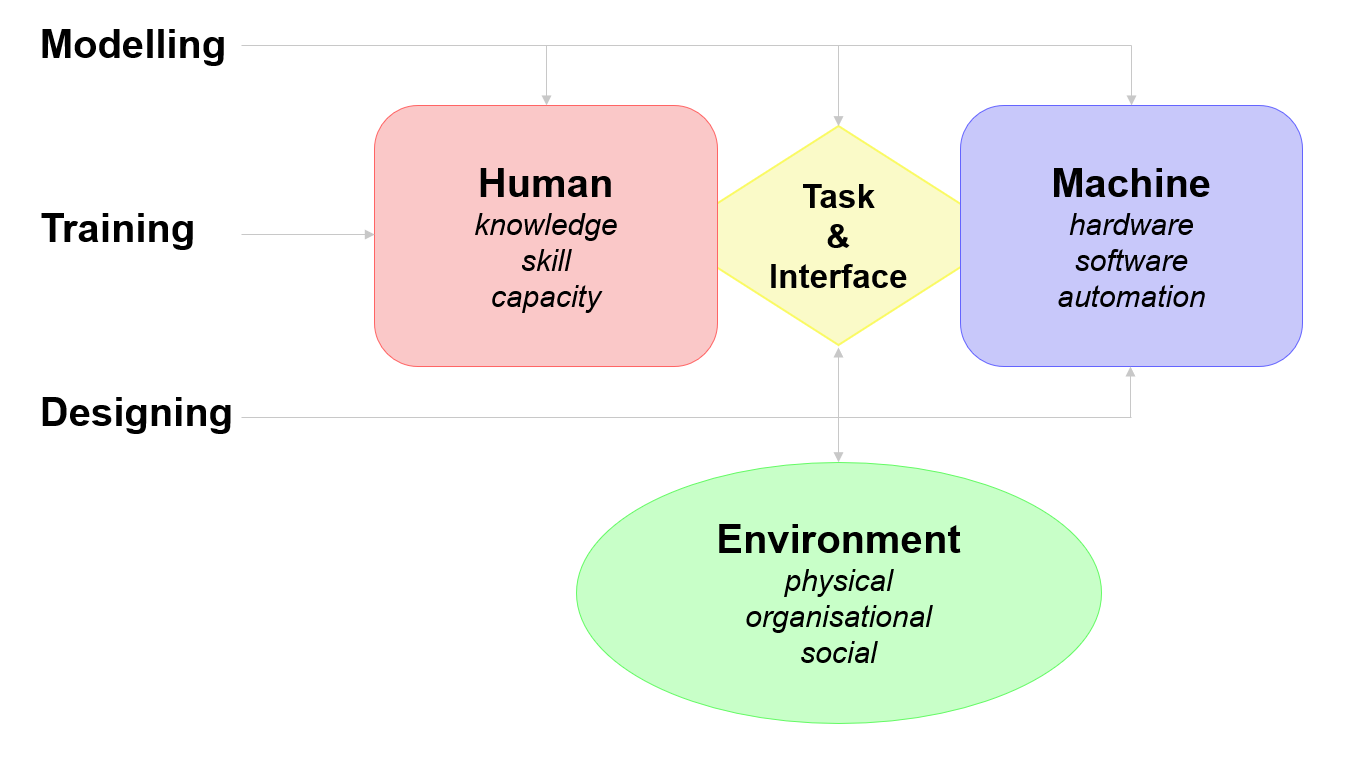Human factors are a crucial component of complex systems and have significant impact on system performance and reliability.
As defined by the International Ergonomics Association and the Human Factors and Ergonomics Society:
Human factors (or ergonomics) is the scientific discipline concerned with the understanding of interactions among humans and other elements of a system, and the profession that applies theory, principles, data and methods to design in order to optimize human well-being and overall system performance. Ergonomists contribute to the design and evaluation of tasks, jobs, products, environments and systems in order to make them compatible with the needs, abilities and limitations of people.
Current research interests:
- Human factors and cognitive ergonomics
- Simulation and modelling of human performance, mental workload, and situation awareness
- Human-computer interface evaluation and design
- Human reliability assessment and optimization
- Competency-based training and education in aviation
- Virtual and augmented reality applications in human factors optimization
- Internet of Things applications in human factors optimization
Our research in Human Optimization Modelling Lab (HOMLab) focused on developing tools, methods, and theories for studying, evaluating, and optimizing human factors in human-machine systems.
A unique strength of HOMLab is to use both empirical experimentation and theory-based computational modelling methods, combining data-driven and theory-driven approaches in the related research areas including cognitive psychology, simulation and modelling, and human factors engineering.

Flight simulator
